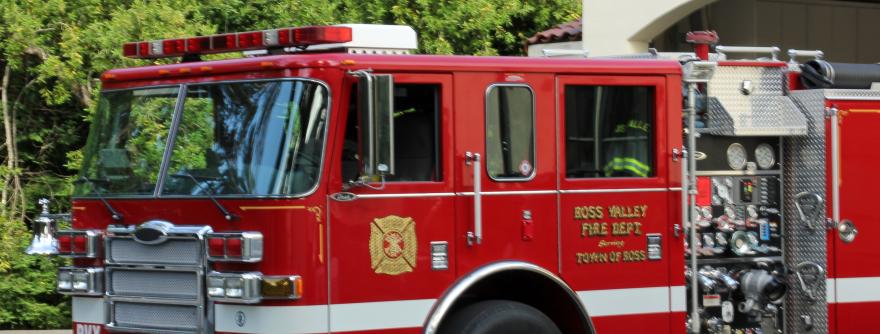-
Community
-
- Our Community About the Town of Ross Downtown Plan Town Events Community Calendar Town History
- Churches St. Anselm Catholic Church St. John's Episcopal Church Schools The Ross School The Branson School The Ross Preschool
- Organizations Age Friendly Ross The Jose Moya del Pino Library and Ross Historical Society Marin Art and Garden Center Ross Auxiliary Ross Property Owners' Association
-
-
Government
-
- Agendas and Minutes Council Committees Community Protection Committee Finance Committee General Government Committee Town Council Town Goals
- Departments Administration Building Finance Human Resources Planning Public Works Recreation
- Public Safety Police Department Ross Valley Fire Department Emergency Services Community Preparedness Fire Information Flood Information
-
-
Services
-
-
Business Licenses
Marin Humane Society Dog Licensing
Marin Wildfire Prevention Authority Permit Services Building Permits Encroachment Permits Commercial Filming Permit Special Events Permit Community Portal - Plan Review Services Police Home Security Checklist Form Police Vacation Check Form Ross Valley Fire Department Ross Valley Paramedic Authority
-
Business Licenses
-
- Resources
Fire Information
WILDLAND FIRES
With the recent wildfires that California has experienced, it is more important than ever that Ross residents be prepared. Excellent, helpful information on wildfire safety awareness and prevention can be found at FireSafe Marin and Ross Valley Fire Department.
Wildland fires are uncontrolled, non-structure fires that occur in rural, woodland or bush areas.
The danger posed by wildland fires
Wildfires can cause extensive destruction of homes and other property located in the wildland-urban interface, the zone between developed and undeveloped areas. Wildland fires can quickly move from the interface area to more densely populated communities.
Before Wildfire season: Make a wildfire plan
- Know your wildfire risk.
- Familiarize yourself with local emergency plans. Know where to go and how to get there should you need to evacuate.
- Make a wildfire emergency plan including an evacuation plan and a communication plan.
- Sign up to get emergency alerts via text, cell phone, and email.
- Build or restock your emergency preparedness kit including a flashlight, batteries, cash, and first aid supplies.
- Stay tuned to your local TV or radio for weather updates, emergency instructions or evacuation orders. Have battery powered radios on hand and preset those stations.
Prepare Your Home – taking steps to mitigate the danger of wildland fires
- Create defensible space around your home. Maintain an area approximately 30 feet away from your home that is free of anything that will burn, such as wood piles, dried leaves, newspapers, brush, and other landscaping that can burn. From 30 feet to 100 feet reduce or replace as much of the most flammable vegetation as possible and prune vegetation, create “fuel breaks”, such as driveways, gravel walkways, and lawns. Work with neighbors to create spaces up to 200 feet around your homes where vegetation is thinned to remove underbrush and tall trees do not touch each other for continuous canopies.
- Learn what plants are Fire Resistant or Fire-Prone at FireSafe Marin.
- Review the Town of Ross' Wildland-Urban Interface (WUI) map to see what areas of Ross are considered high fire risk.
- Regularly clean the roof and gutters.
- Avoid fire, heat or spark producing activities during periods of high wind.
- Dispose of flammables (charcoal, etc.) properly.
- Discuss hazard and actions with staff and family to broaden awareness.
- Ensure portable firefighting equipment is operational.
- Pre-inspect grass areas before mowing to remove spark producing debris.
- Schedule spark/heat generating work during cooler parts of the day.
- Connect garden hoses long enough to reach any area of the home and fill garbage cans, tubs, or other large containers with water.
- Report hazardous activities, smoke or fire to 9-1-1.
- Review your homeowner’s insurance policy and also prepare/update a list of your home’s contents.
During a Wildfire
- If there is a wildfire in the area, be ready to evacuate on short notice.
- If you see a wildfire and haven’t received evacuation orders yet, call 9-1-1. Don’t assume that someone else has already called.
- If ordered to evacuate during a wildfire, do it immediately, and make sure you tell someone where you are going and when you have arrived.
- If you or someone you are with has been burned, call 9-1-1 or seek help immediately, cool and cover burns to reduce chance of further injury or infection.
After a Wildfire - Returning Home
- Return home only when authorities say it is safe.
- For several hours after the fire, maintain a “fire watch”. Check and re-check for smoke, sparks or hidden embers throughout the house, including on the roof and in the attic.
- Use caution when entering burned area as hazards may still exist, including hot spots, which can flare up without warning. Evacuate immediately if you smell smoke.
Cleaning your Home
- Wear a NIOSH certified-respirator (dust mask) and wet debris down to minimize breathing dust particles.
- Discard any food that has been exposed to heat, smoke or dust.
- Do NOT use water that you think may be contaminated to wash dishes, brush teeth, prepare food, wash hands, or to make ice or baby formula.
- Photograph damage to your property for insurance purposes.

